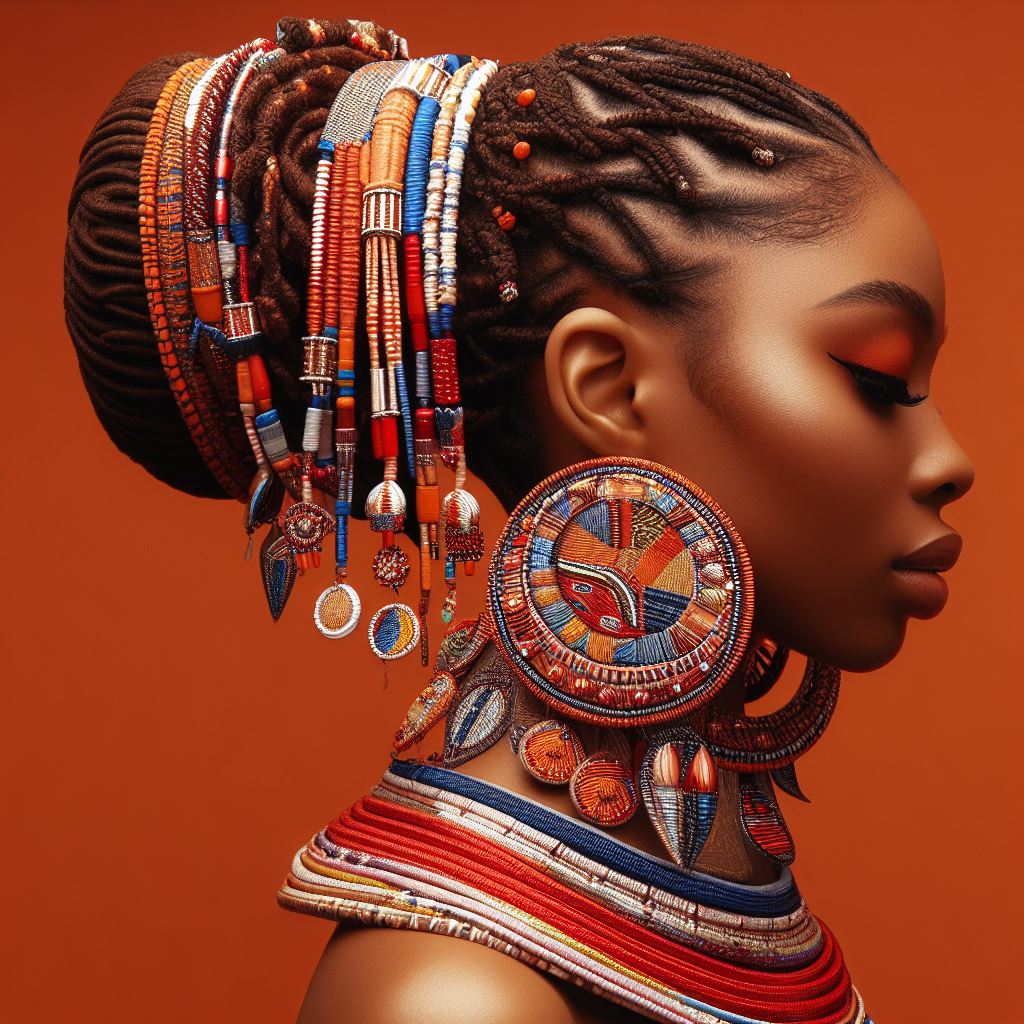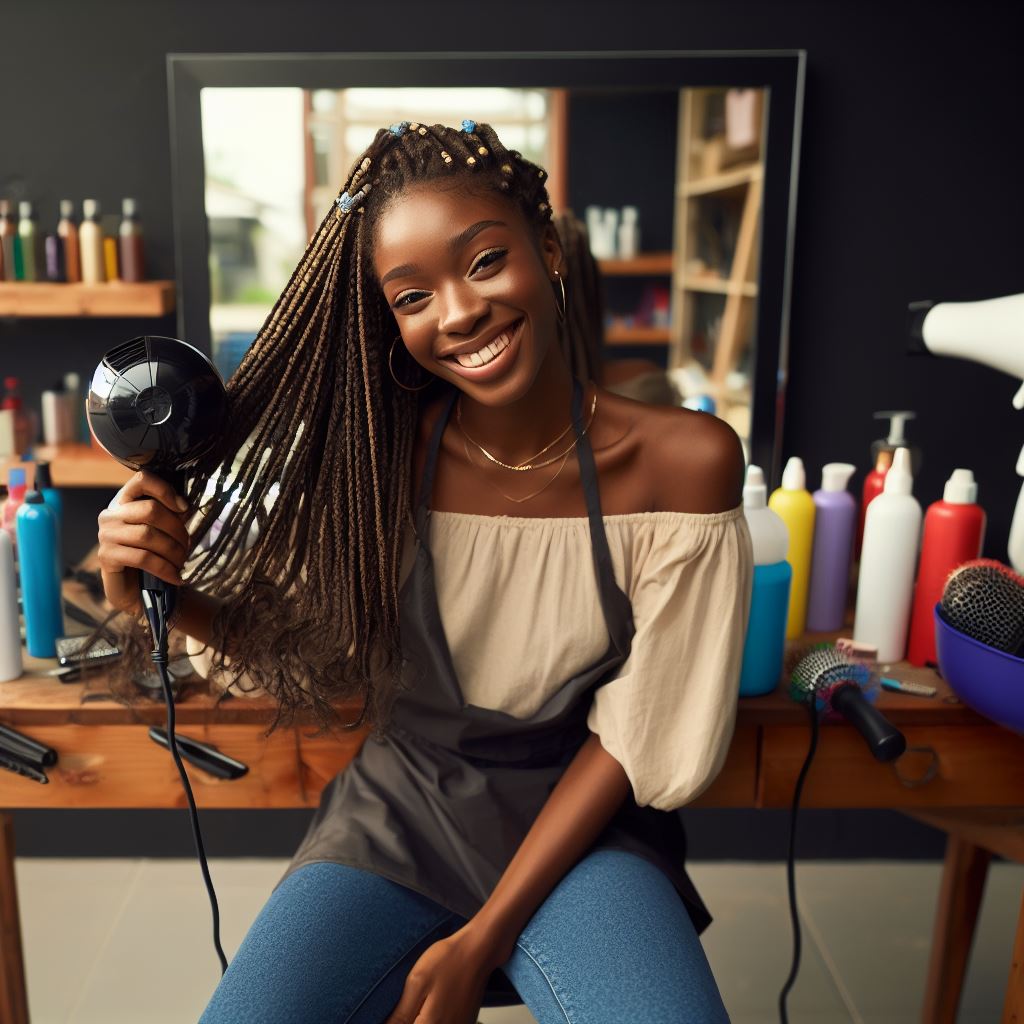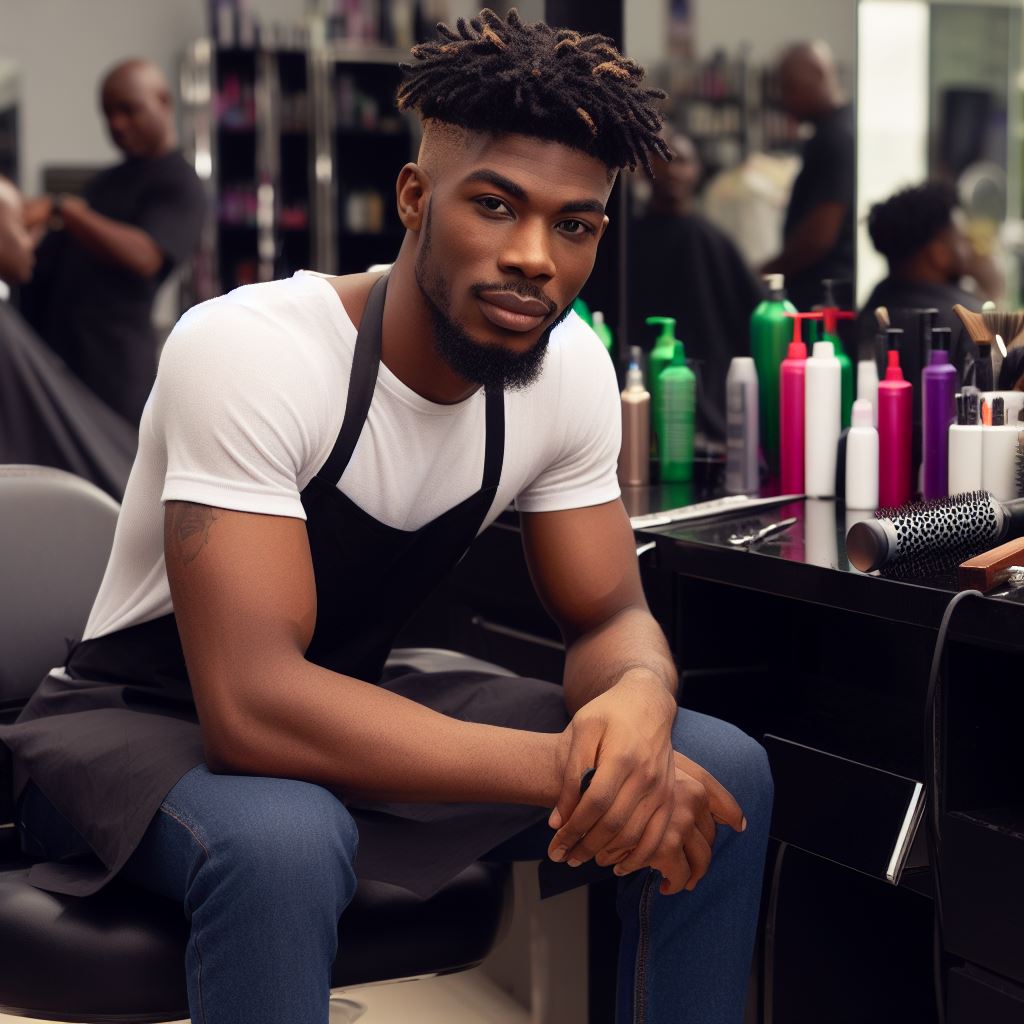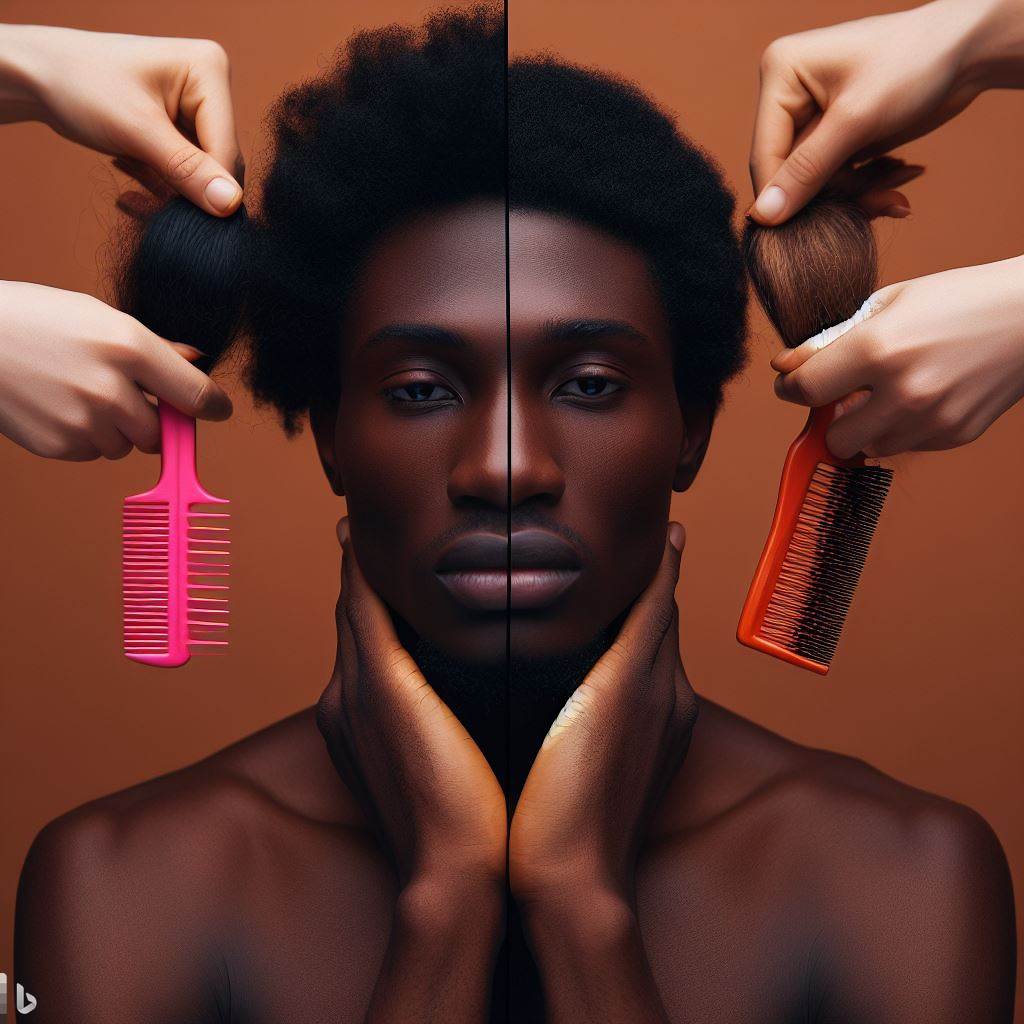Introduction
Nigeria, a nation boasting a rich tapestry of cultural diversity with over 250 ethnic groups, each contributing to the vibrant mosaic of traditions.
Amidst this cultural symphony, hair emerges as a powerful emblem, symbolizing beauty, identity, and heritage.
In this kaleidoscope of traditions, Cultural Hair Styles in Nigeria stand as living testimonials to the nation’s multifaceted heritage.
These styles transcend mere aesthetics, weaving narratives of ancestral legacies and societal affiliations.
From intricate braids to boldly expressive patterns, each style reflects the unique essence of its wearer’s cultural background.
Beyond the surface, these hairstyles serve as a visual language, communicating stories of resilience, unity, and pride.
As strands intertwine, so do the narratives of Nigeria’s diverse ethnic communities, creating a harmonious celebration of cultural identity through the artistry of hair.
Join us on a captivating journey through the Cultural Hair Styles of Nigeria, where every strand tells a story, and tradition meets modern expression in a harmonious dance of beauty.
Traditional Nigerian Hairstyles
History and significance of traditional hairstyles
Traditional hairstyles hold a deep cultural significance in Nigeria, offering a glimpse into the rich heritage and traditions of the various tribes.
These hairstyles are not just a fashion statement; they are a symbol of identity and cultural pride.
For centuries, Nigerian women have adorned their hair with intricate styles that reflect their tribal affiliations, social status, and even marital status.
These hairstyles have been passed down through generations, serving as a way to connect with ancestors and preserve cultural heritage.
Description of popular traditional hairstyles
1. Bantu knots
Bantu knots are one of the most popular traditional hairstyles in Nigeria.
They are characterized by small, coiled buns that are created by twisting the hair in circular motions.
This style originated from the Bantu ethnic group and is often adorned with beads, cowrie shells, or colorful threads.
2. Fulani braids
Fulani braids, also known as “Fulani inspired” braids, are another iconic Nigerian hairstyle.
Named after the Fulani people, this style features braided cornrows that are adorned with cowrie shells, beads, or metallic accessories.
Fulani braids are often accompanied by a middle parting and can be styled in various patterns and designs.
3. Didi style
Didi style is a traditional Nigerian hairstyle that involves weaving colorful threads into the hair.
This technique creates intricate patterns and designs that vary from geometric shapes to floral motifs.
Didi style is commonly used to create rows of parallel lines or zigzag patterns, adding a vibrant touch to the hair.
4. Eko bridge hairstyle
The Eko bridge hairstyle is a unique and elaborate Nigerian hairstyle that resembles the iconic Eko Bridge in Lagos.
This style involves weaving the hair into a high bun, creating a structure reminiscent of the bridge’s arches. The Eko bridge hairstyle requires skillful styling and is often worn for special occasions or ceremonies.
Traditional Nigerian hairstyles are not only visually stunning but also serve as a means of cultural expression.
They represent a link to the past, celebrating the diversity and beauty of Nigeria’s tribes.
Whether it’s the Bantu knots, Fulani braids, Didi style, or the Eko bridge hairstyle, each traditional hairstyle carries a story and embodies the cultural pride of Nigeria.
Modern Nigerian Hairstyles
Introduction of Western influences on Nigerian hairstyles
- Nigerian hairstyles have evolved over the years, incorporating Western influences.
- Western hairstyles, such as straight hair and hair extensions, have become popular in Nigeria.
- These influences have brought diversity and creativity to modern Nigerian hairstyles.
Description of popular modern Nigerian hairstyles
1. Natural hair movement
The natural hair movement in Nigeria is a celebration of the diverse textures and styles of African hair.
Many Nigerians, especially women, have embraced their natural hair, discarding relaxers and chemical treatments.
This movement encourages self-love and acceptance.
2. Weaves and extensions
Weaves and extensions have become a common practice among Nigerian women.
They provide length and volume to the hair, allowing for versatility in styling. Some Nigerians opt for human hair extensions, while others choose synthetic ones.
3. Cornrows and box braids
Cornrows and box braids are traditional Nigerian hairstyles that have been popular for centuries.
These intricate styles require skilled braiding techniques and can be worn in various lengths and designs. They are not only fashionable but also protect the natural hair.
4. Afro-textured hairstyles
Afro-textured hairstyles, such as the iconic afro and twist-outs, have made a comeback in Nigeria.
These styles celebrate the natural texture of African hair and require minimal manipulation. Afro-textured hairstyles have become a symbol of pride and cultural identity.
In fact, modern Nigerian hairstyles have been influenced by Western trends, resulting in a diverse range of styles.
The natural hair movement, weaves and extensions, cornrows and box braids, and afro-textured hairstyles are some of the popular choices among Nigerians today.
These hairstyles not only showcase creativity but also promote self-expression and cultural pride.
Read: Hair Styling Competitions in Nigeria: A Full Guide
Role of Hair Stylists in Nigeria
Importance of hair stylists in maintaining cultural hair traditions
- Hair stylists play a crucial role in preserving and promoting Nigeria’s diverse cultural hair traditions.
- They possess the expertise to create and maintain intricate hairstyles that are deeply rooted in Nigerian culture.
- By understanding the significance of these hairstyles, stylists can ensure their preservation for future generations.
- They use their artistic skills to embellish hairstyles with cultural elements that reflect the wearer’s identity.
- Stylists collaborate with clients, helping them express their cultural pride through their hair choices.
- Through their work, hair stylists contribute to the preservation of Nigerian cultural heritage and traditions.
Training and skills required to be a professional hair stylist
- Becoming a professional hair stylist in Nigeria requires extensive training and development of specific skills.
- Stylists need to learn the diverse techniques and styles prevalent in Nigerian cultural hair traditions.
- They must have a deep understanding of the cultural significance of various hairstyles.
- Training programs teach stylists how to handle different hair types and textures.
- Skills such as braiding, weaving, threading, and intricate hair designs are honed during training.
- Professionals also learn about hair care, hygiene, safety measures, and the use of specialized products.
Challenges faced by hair stylists in Nigeria
- Even though hair stylists play a vital role in preserving culture, they face various challenges.
- One challenge is the lack of recognition and appreciation for cultural hair traditions by the wider society.
- Stylists often struggle to find support and resources to continue their training and improve their skills.
- Competition in the industry is intense, making it difficult for stylists to establish themselves.
- Additionally, economic constraints hinder stylists from obtaining quality hair care products and tools.
- There is also a need for increased awareness and education to combat negative stereotypes associated with certain hairstyles.
- Despite these challenges, dedicated hair stylists continue to persevere, proud to represent Nigerian culture.
In review, hair stylists in Nigeria occupy a crucial position in preserving cultural hair traditions.
Their expertise, creativity, and commitment allow them to maintain and enhance the beauty of these traditions.
Through extensive training, they gain the necessary skills to handle diverse hair types and textures.
However, they face challenges such as lack of recognition, limited resources, and competition.
Despite these obstacles, hair stylists persist in their mission to uphold Nigerian cultural heritage through the artistry of hair.
Read: Hair Care Products in Nigeria: A Stylist’s Review

Hair Care and Maintenance
Tips for maintaining healthy hair in Nigeria’s climate
- Protect your hair from the harsh sun by wearing hats or scarves.
- Use a sulfate-free shampoo to avoid dryness and breakage.
- Deep condition your hair regularly to keep it moisturized and prevent brittleness.
- Avoid overusing heat styling tools like flat irons and curling irons.
- Trim your hair every 6-8 weeks to get rid of split ends and promote healthy growth.
- Minimize the use of chemical relaxers, as they can damage the hair over time.
- Opt for protective hairstyles, such as braids or twists, to reduce manipulation and breakage.
- Avoid excessive brushing or combing, as it can lead to hair breakage.
- Maintain a healthy diet and hydrate yourself adequately to promote hair growth.
- Get regular scalp massages to improve blood circulation and stimulate hair follicles.
Importance of proper hair care routine
A proper hair care routine is essential for maintaining healthy hair in Nigeria’s climate.
Here’s why:
- It protects the hair from environmental damage caused by the sun, pollution, and humidity.
- It prevents dryness, brittleness, and breakage, ensuring the hair remains strong and resilient.
- It promotes healthy hair growth by providing the necessary nutrients and hydration.
- It improves the overall appearance of the hair, making it look shiny, smooth, and more manageable.
- It boosts self-confidence and enhances personal grooming, contributing to an individual’s overall well-being.
Recommended products and practices for hair care
When it comes to hair care in Nigeria, the following products and practices are highly recommended:
- Use a moisturizing shampoo and conditioner that suits your hair type.
- Incorporate a leave-in conditioner or hair oil to provide extra nourishment and hydration.
- Try natural remedies like aloe vera, coconut oil, or shea butter for deep conditioning treatments.
- Avoid using excessive heat on the hair and use a heat protectant spray before styling.
- Consider using a wide-toothed comb or a detangling brush to minimize hair breakage.
- Choose hair care products that are specifically formulated for the Nigerian climate.
- Protect your hair overnight by sleeping on a satin pillowcase or wearing a satin scarf.
- Consult a professional stylist or trichologist for personalized advice on hair care.
- Pay attention to your scalp health and address any issues like dandruff or dryness.
- Stay consistent with your hair care routine and be patient, as it takes time to see results.
By following these tips, understanding the importance of hair care, and using recommended products and practices, you can maintain healthy and beautiful hair in Nigeria’s diverse climate.
Remember, a well-cared-for head of hair can make a significant difference in your overall appearance and confidence.
Read: Beauty Schools in Nigeria: A Stylist’s Education Path
Cultural Significance of Nigerian Hairstyles
Nigerian hairstyles hold great cultural significance and play a significant role in expressing identity and cultural pride.
Expression of identity and cultural pride
Nigerian hairstyles are not merely trends, but expressions of personal identity and cultural pride. They reflect one’s tribe, social status, and even religious beliefs.
Through unique and intricate hairstyles, Nigerians proudly display their heritage and affirm their roots, fostering a sense of unity and belonging within their communities.
By embracing and showcasing their cultural hairstyles, Nigerians affirm their distinct identities and challenge societal norms that favor Western ideals.
Role of hairstyles in traditional ceremonies and celebrations
Nigerian hairstyles hold immense importance in traditional ceremonies and celebrations, serving as symbols of honor, spirituality, and social status.
During weddings, festivals, and other traditional events, elaborate hairstyles are created using techniques passed down through generations.
These hairstyles not only enhance the beauty of individuals, but they also signify their participation in cultural traditions and mark important milestones in their lives.
Thus, Nigerian hairstyles are both a visual spectacle and a reflection of cultural heritage, evoking a sense of community and kinship during celebrations.
Hair as a symbol of beauty and femininity in Nigerian culture
In Nigerian culture, hair is considered a symbol of beauty and femininity, with hairstyles serving as a form of self-expression and empowerment for women.
Women in Nigeria take great pride in their hair and invest substantial time and effort in styling it.
From intricate braids, buns, and weaves to adorned headscarves and headgears, Nigerian women masterfully create unique hairstyles that accentuate their features and enhance their beauty.
These hairstyles also act as a medium through which women express their individuality, creativity, and personal style.
Moreover, Nigerian women often bond and share haircare techniques and styling tips, strengthening social connections and fostering a sense of sisterhood.
In short, Nigerian hairstyles hold immense cultural significance in expressing identity, cultural pride, and beauty.
These hairstyles serve as a visual representation of individual and communal heritage, honoring traditions, and marking important milestones.
Furthermore, they empower women by showcasing their beauty, creativity, and femininity, while also promoting a sense of unity and social connection.
Overall, Nigerian hairstyles are not just about hair, but they are a celebration of culture, diversity, and the power of self-expression.
Read: Nigeria’s Hair Stylist Unions and Associations
Conclusion
The importance of hair in Nigerian culture cannot be overstated.
It serves as a way to express individuality, tradition, and social status.
Nigerian hairstyles are incredibly diverse and reflect the beauty of the country’s rich cultures.
They are a testament to the creativity and skill of Nigerian stylists.
It is essential for Nigerians to embrace and celebrate their cultural hair styles, as they are a unique and valuable aspect of their identity.
By doing so, they not only honor their heritage but also contribute to the preservation and promotion of Nigerian culture.
Let us appreciate and learn from the different hair styles in Nigeria, respecting their history and significance.
The beauty of Nigerian hair styles should be admired and cherished, as they are a symbol of cultural resilience and pride.
So, let us all embrace and celebrate the cultural diversity and beauty of Nigerian hair styles.




